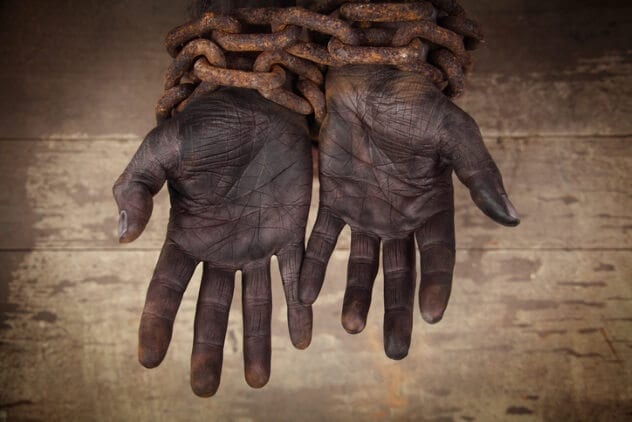

Quite the topic eh?
Not every person of color who owned slaves did so for business reasons. In fact, many did so for sentimental reasons. In several states, while a slave was permitted to buy their own freedom, once they had earned it, there were strict rules in place designed to discourage the newly-freed slaves from setting others free. For their part, owners who freed slaves were often required to send them to other states. Meanwhile, the freed slaves themselves were not only required to move states but they might also be barred from purchasing their loved ones’ freedom.
Given this, some newly-freed slaves would set about earning enough money that they could buy slaves of their own. And, once they had the financial ability to do so, they would buy their husbands, wives, children or even friends. Thus, while the whole family might not be ‘free’ legally speaking, at least they could all be together.

Nathaniel Butler
Not all slave owners of color purchased slaves in order to keep their families united, however. Nat Butler was far from sentimental. Once he gained his freedom, his sole concern was making as much money as he could, with trading slaves seen as the best way to earn some fast money. So cut-throat was Butler in his dealings that it wasn’t just slaves who feared crossing his path. His ruthlessness was also noted by white plantation owners, ensuring that Butler wrote himself into the history books.
Little, indeed next to nothing is known about Butler’s early life, including his years as a slave and how and when he earned his freedom. Historians do, however, know something about his years as a free man. He lived just outside of the town of Aberdeen in Hartford County, Maryland. While he may have cultivated his land, it appears that his main source of income came from the selling of slaves. More specifically, he made a tidy profit sending escaped slaves back to their masters. Quite simply, if you were a plantation owner in Maryland and one of your slaves went missing, Butler could bring him or her back to you – for a price, of course.
In many cases, escaped slaves would turn to Butler for help. Perhaps they thought that, as a man of color himself and, moreover, one who had experienced the cruelty of slavery first-hand, he might show them compassion. But he only showed them cruelty. Butler would convince the slaves to stay on his property. While they thought they were safe, he would try and find out who the slaves ‘belonged to’, and more importantly, how much they were willing to pay for their safe return. If the reward was big enough, Butler would send the slaves back. If the slaves didn’t have a big price on their head, Butler would buy them for himself and then sell them for a profit.
Over the years, Butler amassed a relative fortune – especially for a person of color in Maryland. He also gained a reputation. Butler was feared by slaves. They were wary that, even if they managed to escape their plantations, they could fall into Butler’s hands and end up working in even tougher conditions in the Deep South, many miles from their loved ones. Even his fellow slave traders, as well as the white plantation owners themselves, felt he could be too tough, or cruel even. Indeed, so hated was Butler that slaves tried to kill him on several occasions, with no success. What ultimately became of Butler, however, remains a mystery as his later years are lost to history.
Taken from 10 Black Slaveowners
